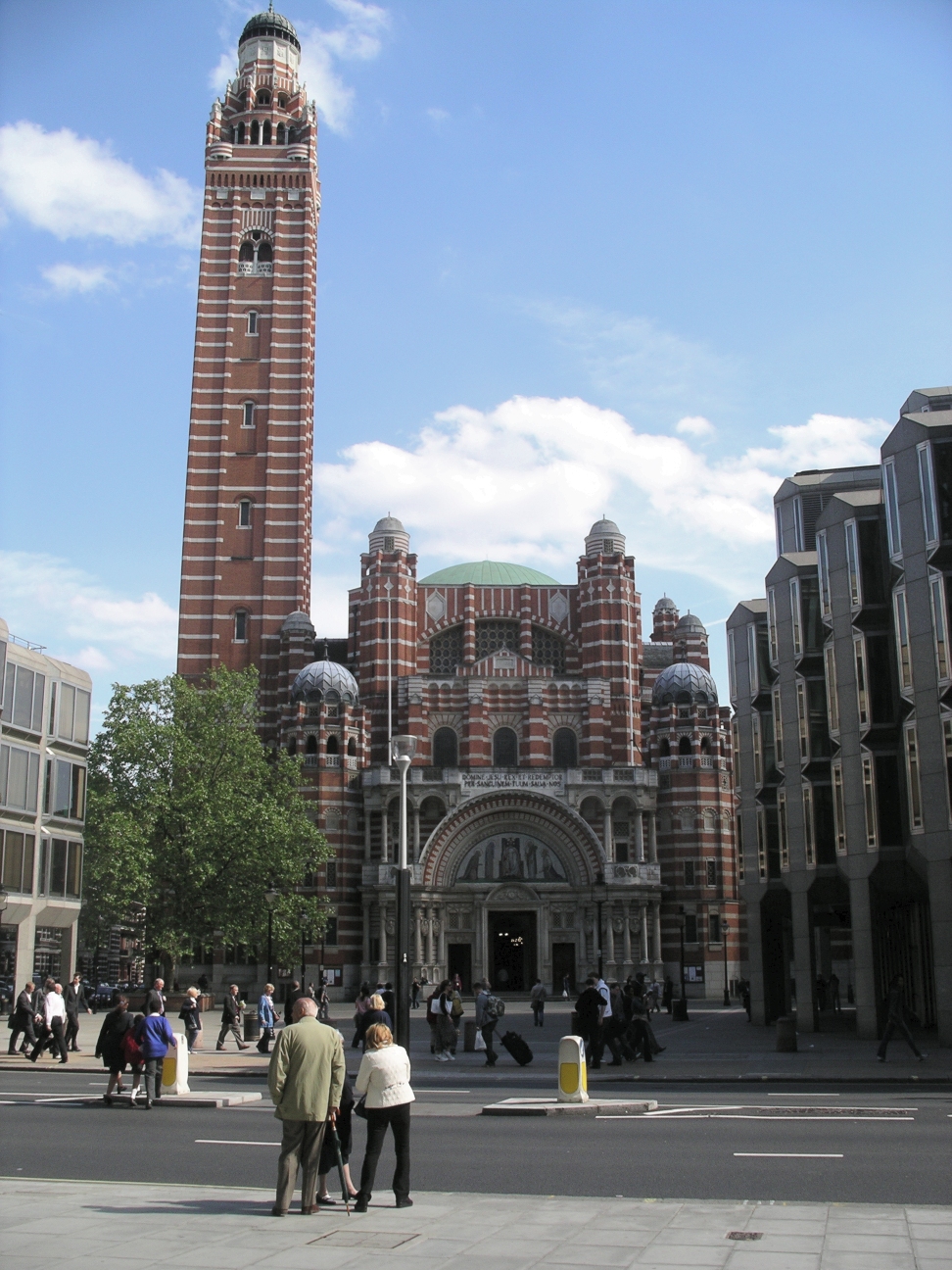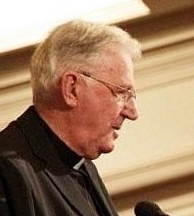|
Theos (think Tank)
Theos (from the el, Θεός, ''theos'', "God") is a religion and society think tank based in the United Kingdom which exists to undertake research and provide commentary on social and political arrangements. Theos aims to impact opinion around issues of faith and belief in society through research, publications, media engagement and events. Theos was launched in November 2006 with the support of the then Archbishop of Canterbury, Rowan Williams, and the then Archbishop of Westminster, Cardinal Cormac Murphy O'Connor, and maintains an ecumenical position. Theos is based in central London. Nick Spencer, Research Director at Theos has published multiple books, including ''The Evolution of the West: How Christianity Shaped Our Values'' and ''Atheists: The Origin of the Species''. His most recent book is ''The Political Samaritan: How Power Hijacked a Parable''. References External links *{{official, http://www.theosthinktank.co.ukJoint Committee takes evidence from Archbishop of ... [...More Info...] [...Related Items...] OR: [Wikipedia] [Google] [Baidu] |
Think Tank
A think tank, or policy institute, is a research institute that performs research and advocacy concerning topics such as social policy, political strategy, economics, military, technology, and culture. Most think tanks are non-governmental organizations, but some are semi-autonomous agencies within government or are associated with particular political parties, businesses or the military. Think-tank funding often includes a combination of donations from very wealthy people and those not so wealthy, with many also accepting government grants. Think tanks publish articles and studies, and even draft legislation on particular matters of policy or society. This information is then used by governments, businesses, media organizations, social movements or other interest groups. Think tanks range from those associated with highly academic or scholarly activities to those that are overtly ideological and pushing for particular policies, with a wide range among them in terms of th ... [...More Info...] [...Related Items...] OR: [Wikipedia] [Google] [Baidu] |
Charitable Organization
A charitable organization or charity is an organization whose primary objectives are philanthropy and social well-being (e.g. educational, Religion, religious or other activities serving the public interest or common good). The legal definition of a charitable organization (and of charity) varies between countries and in some instances regions of the country. The Charity regulators, regulation, the tax treatment, and the way in which charity law affects charitable organizations also vary. Charitable organizations may not use any of their funds to profit individual persons or entities. (However, some charitable organizations have come under scrutiny for spending a disproportionate amount of their income to pay the salaries of their leadership). Financial figures (e.g. tax refund, revenue from fundraising, revenue from sale of goods and services or revenue from investment) are indicators to assess the financial sustainability of a charity, especially to charity evaluators. This ... [...More Info...] [...Related Items...] OR: [Wikipedia] [Google] [Baidu] |
Think Tank
A think tank, or policy institute, is a research institute that performs research and advocacy concerning topics such as social policy, political strategy, economics, military, technology, and culture. Most think tanks are non-governmental organizations, but some are semi-autonomous agencies within government or are associated with particular political parties, businesses or the military. Think-tank funding often includes a combination of donations from very wealthy people and those not so wealthy, with many also accepting government grants. Think tanks publish articles and studies, and even draft legislation on particular matters of policy or society. This information is then used by governments, businesses, media organizations, social movements or other interest groups. Think tanks range from those associated with highly academic or scholarly activities to those that are overtly ideological and pushing for particular policies, with a wide range among them in terms of th ... [...More Info...] [...Related Items...] OR: [Wikipedia] [Google] [Baidu] |
United Kingdom
The United Kingdom of Great Britain and Northern Ireland, commonly known as the United Kingdom (UK) or Britain, is a country in Europe, off the north-western coast of the continental mainland. It comprises England, Scotland, Wales and Northern Ireland. The United Kingdom includes the island of Great Britain, the north-eastern part of the island of Ireland, and many smaller islands within the British Isles. Northern Ireland shares a land border with the Republic of Ireland; otherwise, the United Kingdom is surrounded by the Atlantic Ocean, the North Sea, the English Channel, the Celtic Sea and the Irish Sea. The total area of the United Kingdom is , with an estimated 2020 population of more than 67 million people. The United Kingdom has evolved from a series of annexations, unions and separations of constituent countries over several hundred years. The Treaty of Union between the Kingdom of England (which included Wales, annexed in 1542) and the Kingdom of Scotland in 170 ... [...More Info...] [...Related Items...] OR: [Wikipedia] [Google] [Baidu] |
Archbishop Of Canterbury
The archbishop of Canterbury is the senior bishop and a principal leader of the Church of England, the ceremonial head of the worldwide Anglican Communion and the diocesan bishop of the Diocese of Canterbury. The current archbishop is Justin Welby, who was enthroned at Canterbury Cathedral on 21 March 2013. Welby is the 105th in a line which goes back more than 1400 years to Augustine of Canterbury, the "Apostle to the English", sent from Rome in the year 597. Welby succeeded Rowan Williams. From the time of Augustine until the 16th century, the archbishops of Canterbury were in full communion with the See of Rome and usually received the pallium from the pope. During the English Reformation, the Church of England broke away from the authority of the pope. Thomas Cranmer became the first holder of the office following the English Reformation in 1533, while Reginald Pole was the last Roman Catholic in the position, serving from 1556 to 1558 during the Counter-Reformation. ... [...More Info...] [...Related Items...] OR: [Wikipedia] [Google] [Baidu] |
Rowan Williams
Rowan Douglas Williams, Baron Williams of Oystermouth, (born 14 June 1950) is a Welsh Anglican bishop, theologian and poet. He was the 104th Archbishop of Canterbury, a position he held from December 2002 to December 2012. Previously the Bishop of Monmouth and Archbishop of Wales, Williams was the first Archbishop of Canterbury in modern times not to be appointed from within the Church of England. Williams's primacy was marked by speculation that the Anglican Communion (in which the Archbishop of Canterbury is the leading figure) was on the verge of fragmentation over disagreements on contemporary issues such as homosexuality and the ordination of women. Williams worked to keep all sides talking to one another. Notable events during his time as Archbishop of Canterbury include the rejection by a majority of dioceses of his proposed Anglican Covenant and, in the final general synod of his tenure, his unsuccessful attempt to secure a sufficient majority for a measure to allow ... [...More Info...] [...Related Items...] OR: [Wikipedia] [Google] [Baidu] |
Archbishop Of Westminster
The Archbishop of Westminster heads the Roman Catholic Diocese of Westminster, in England. The incumbent is the metropolitan of the Province of Westminster, chief metropolitan of England and Wales and, as a matter of custom, is elected president of the Catholic Bishops' Conference of England and Wales, and therefore ''de facto'' spokesman of the Catholic Church in England and Wales. All previous archbishops of Westminster have become cardinals. Although all the bishops of the restored diocesan episcopacy took new titles, like that of Westminster, they saw themselves in continuity with the pre-Reformation Church and post-Reformation vicars apostolic and titular bishops. Westminster, in particular, saw itself as the continuity of Canterbury, hence the similarity of the coats of arms of the two sees, with Westminster believing it has more right to it since it features the pallium, a distinctly Catholic symbol of communion with the Holy See. History With the gradual abolition of ... [...More Info...] [...Related Items...] OR: [Wikipedia] [Google] [Baidu] |
Cormac Murphy O'Connor
Cormac Murphy-O'Connor (24 August 1932 – 1 September 2017) was a British cardinal, the Archbishop of Westminster and president of the Catholic Bishops' Conference of England and Wales. He was made cardinal by Pope John Paul II in 2001. He submitted his resignation as archbishop on reaching his 75th birthday in 2007; Pope Benedict XVI accepted it on 3 April 2009. By virtue of his position as Archbishop of Westminster, Murphy-O'Connor was sometimes referred to as the Catholic Primate of England and Wales. However, though the holders within the Church of England of the posts of Archbishop of Canterbury and Archbishop of York are called the "Primate of All England" and "Primate of England" respectively, the title of primate has never been used by the ''de facto'' leaders of the Catholic Church in England and Wales. Early life Cormac Murphy-O'Connor was born on 24 August 1932 in Reading, Berkshire, [...More Info...] [...Related Items...] OR: [Wikipedia] [Google] [Baidu] |
Julian Baggini
Julian Baggini (; born 1968) is a philosopher, journalist and the author of over 20 books about philosophy written for a general audience. He is co-founder of ''The Philosophers' Magazine'' and has written for numerous international newspapers and magazines. In addition to writing on the subject of philosophy he has also written books on atheism, secularism and the nature of national identity. He is a patron of Humanists UK. Education Baggini was born in 1968 in Folkestone, the child of an Italian immigrant father and English mother. He grew up in Kent and was educated at the Harvey Grammar School, Folkestone, from 1980 until 1987. He later attended Reading University and gained a bachelor's degree in philosophy in 1990. In 1996 he was awarded a PhD from University College London for a thesis on the philosophy of personal identity. Baggini is an honorary graduate and honorary research fellow of the University of Kent's department of philosophy. Career In 1997 Baggini co-fou ... [...More Info...] [...Related Items...] OR: [Wikipedia] [Google] [Baidu] |
Christian Political Organizations
Christians () are people who follow or adhere to Christianity, a monotheistic Abrahamic religion based on the life and teachings of Jesus Christ. The words ''Christ'' and ''Christian'' derive from the Koine Greek title ''Christós'' (Χριστός), a translation of the Biblical Hebrew term ''mashiach'' (מָשִׁיחַ) (usually rendered as ''messiah'' in English). While there are diverse interpretations of Christianity which sometimes conflict, they are united in believing that Jesus has a unique significance. The term ''Christian'' used as an adjective is descriptive of anything associated with Christianity or Christian churches, or in a proverbial sense "all that is noble, and good, and Christ-like." It does not have a meaning of 'of Christ' or 'related or pertaining to Christ'. According to a 2011 Pew Research Center survey, there were 2.2 billion Christians around the world in 2010, up from about 600 million in 1910. Today, about 37% of all Christians live in the Ameri ... [...More Info...] [...Related Items...] OR: [Wikipedia] [Google] [Baidu] |





